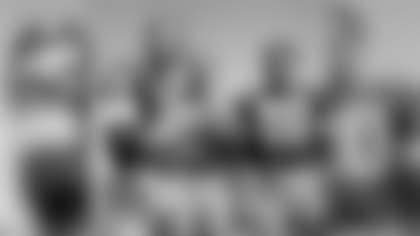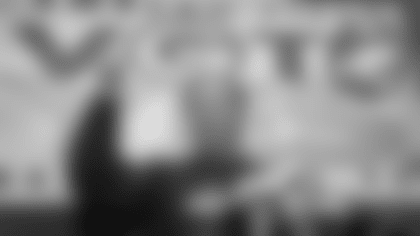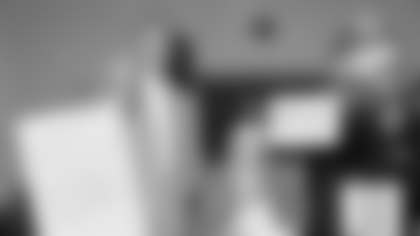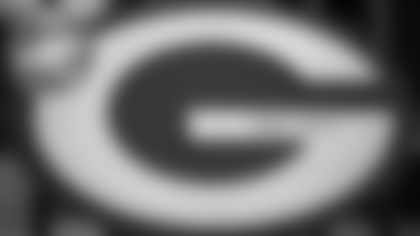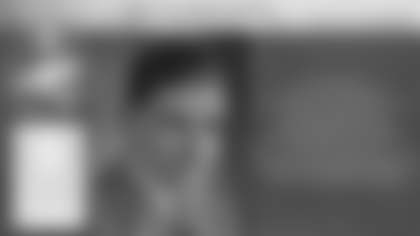Jennifer from Oregon, WI
Is it true that the Packers almost built a dome over Lambeau Field? I saw a story floating around that this was considered multiple times.
Yes, I wrote in some detail about the two occasions when Packers officials discussed the possibility of putting a dome over Lambeau in Volume III of our book, “The Greatest Story in Sports: Green Bay Packers 1919-2019.” In Volume I, I also noted how Curly Lambeau predicted that domed stadiums might become a reality in the NFL sooner than later after digging up a 1943 United Press story by Jack Cuddy, where Lambeau was interviewed on the subject.
Thus, the content wasn't exactly breaking news. But what I wonder is how many people get sucked in by leads like that on a thread and then believe what they read?
Based on what you provided from that thread, the introduction read: "The Green Bay Packers almost built a dome over Lambeau Field right before one of the most iconic games in NFL history." And that was followed by this: "Then, in August 1966, Packer's(sic) coach, Vince Lombardi, admitted that the team had been considering building a dome over Lambeau Field." Next, the thread noted, "The next year, on December 31, 1967, the Packers beat the Cowboys in the Ice Bowl. …"
The first of those three statements was a flagrant exaggeration. The other two were accurate in and of themselves, but there was a devil in the details, so to speak.
Here's what Lombardi said about a possible dome:
"It's just in the talking stage," but would be architecturally feasible. The dome would not completely enclose the stadium as did the Astrodome in Houston but would be retractable and open at both ends to allow sunlight to reach the field. Finally, if approved, it would take two years to build.
Lombardi made those statements on Aug. 10, 1966, 17 days before the only preseason game scheduled for Lambeau Field that year. The Packers were a little more than a month away from playing their first of four regular-season games at Lambeau.
In other words, there was no plan in place to build a dome and no time to alter the 1966 schedule. That meant, construction on a dome couldn't have started until Nov. 21, 1966, the day after the last game in Green Bay. And that would have left 405 days to complete a project that Lombardi said would take 730 days to build.
What's more, the proposal at that time never advanced beyond the talking stage and almost 15 years passed before the subject was addressed again. Exploratory talks about building a dome got more serious in the early 1980s, and blueprints were even drawn, but it still never came close to happening.
Granted, the Packers had an alternative home at the time. They had played a portion of their home games in Milwaukee each season since 1933. Therefore, if construction had started in November, they could have played all seven of their 1967 regular-season home games at County Stadium. A plan also was in the works to play the Western Conference Championship there that year; and conceivably, the Ice Bowl could have been played there, too.
At the time, the NFL Championship Game alternated each year between the home of the Eastern and Western Conference winners, so its location was known years in advance.
Back to the story that was "floating" around. Was it true "the Packers almost built a dome over Lambeau Field right before one of the most iconic games in NFL history," and the Ice Bowl could have been played in a dome?
P.T. Barnum had the answer.
Jack from Eden Prairie MN
Many years ago – I want to say 1970s – I recall watching a game where the Packers fumbled in the end zone on two consecutive kickoffs. Against the Vikings/Bears? It was a sad time in deer hunting camp that year.
(Note: After this Q&A was posted, three readers reached out and said they believed Jack from Eden Prairie was asking about the Packers' 1971 season opener, which I addressed in a December Q&A and is the second answer on the link below. I believe they are probably correct. No excuses, but for whatever reason, I thought Jack had asked about a start to a game. I no longer have his email and clearly that wasn't part of the question that was posted.) https://www.packers.com/news/packers-players-who-have-served-as-radio-analysts
I'm pretty sure you're remembering the Green Bay at Denver game played Oct. 15, 1984.
Here's how the game started. The Broncos kicked off and Del Rodgers returned it 25 yards to the Packers' 28-yard line. On first down, Gerry Ellis lost six yards, fumbled in the process and Broncos safety Steve Foley scored on a 22-yard fumble recovery. Time elapsed: 16 seconds. Score: 7-0. The Broncos kicked off again and Rodgers returned it 21 yards to the Packers' 22. Again, on first down, Jessie Clark gained five yards, fumbled and Denver cornerback Louis Wright scored on a 27-yard return. Time elapsed: 37 seconds. Score: 14-0.
I checked with Eric Goska, who has thoroughly studied every play-by-play in Packers history, and he couldn't come up with any other game that might be the answer to your question, either.
Perhaps you were thinking Bears or Vikings and deer hunting because of the foul weather. By the time the game started, a light blanket of snow covered the field. By the middle of the first quarter, the yard markers were all but indistinguishable by what had become a heavy, wet snow in the 29-degree temperatures. In the second half, Phillip Epps quit fielding punts because he couldn't see the ball through the fog and swirling snow.
The final score turned out to be 17-14 in Denver's favor, and actually the Packers were in position to take the lead with three-and-a-half minutes left and the ball at the Denver 19-yard line. However, quarterback Lynn Dickey was sacked and fumbled, allowing the Broncos to run out the clock.
It also was one of Dickey's best games. He was 27 of 37 for 371 yards, including a 54-yard touchdown pass to James Lofton. John Elway, Dickey's counterpart, was 11 of 20 for 101 yards and didn't complete a pass downfield for more than 16 yards.
Ron from Charlotte, NC
My first Packer game was the Packers-Falcons contest in Atlanta on Dec. 15, 1974. The game featured a record 40,000 no-shows because of Falcon futility and bad weather. As disappointed as I was, I understand that I almost traveled to a game that was never played. Can you please provide the details behind the Packer player revolt of 1974?
First, the Packers lost what was their season finale, 10-3, on a rainy, eerie, 40-degree day. The Falcons had sold 58,850 tickets. The announced attendance was 10,020. The 6-8 Packers outgained the 3-11 Falcons, 263 yards to 197, but scored only on a 43-yard Chester Marcol field goal. John Hadl, in his sixth game with the Packers, completed 15 of 37 passes for 138 yards with two interceptions. Atlanta's Kim McQuilken was 7 of 20 for 68 yards with three interceptions.
The actual no-show count was 48,830.
I wrote 13 pages about that season in "The Greatest Story in Sports." Accordingly, I can't give you all the gory details here. But there were at least two brawls or near-brawls in the locker room in the weeks leading up to that game; and that week players considered boycotting the game to hammer home the point the executive committee needed to fire Dan Devine as coach.
"I think some players were serious about it," cornerback Ken Ellis told me in 2004. Trainer Domenic Gentile told longtime Wisconsin sportswriter Gary D'Amato, "Several players were actually going to skip the team flight to Atlanta and force the Packers to forfeit." Bob Harlan, then assistant general manager, told me in 2013 that when he was driving to what was then Austin Straubel Field on Saturday to catch the team charter to Atlanta, "I didn't know what to anticipate."
Admittedly, I wonder if there was really a serious chance of a boycott, considering what the repercussions would likely have been if the players had followed through on their threat. But that had to be one of the most tumultuous seasons in Packers history. The only other one that I can think of that might compare was 1949, Lambeau's last as coach.
Anyway, Devine was officially hired by Notre Dame the day after the game, and I'd bet anything the players who were part of the anti-Devine faction, if they stuck around Green Bay that night, celebrated well into the evening.
Gary from Corte Madera, CA
I am writing to give you a big thank you for a very informative recent article entitled “Is it time to shout...” It is a mystery to me why hard-core football fans are not aware of some of these statistics. I can't tell you the number of times that I've talked with fans all over the country and asked them the following question: "Which NFL team has won the most NFL championships?" And much to my surprise and disappointment nobody gets the answer right. They pick New England, Pittsburgh, San Francisco or somebody. Then when I give them a hint that NFL championships actually existed before the Super Bowl era, they remain more confused than ever. I grew up in a small town in central Wisconsin called Withee and was lucky enough to attend some Packer games in the early 1970s. I have very fond memories of those games. I now live in the Bay Area in California but remain a steadfast Packer fan and shareholder.
Thanks for your interest in Packers history and for beating the drums about Packers championships. I'll guarantee this, if the World Series ever becomes a global event, Major League Baseball won't forget about the AL-NL World Series winners and ignore its long and rich tradition like the NFL does.
Ted from Amherst, NY
I agree that people talking about the Chiefs' potential threepeat being the first are ignorant. But a champion today is the best of 32 teams while Lambeau's championships were the best of 12, 11 and 10 teams. So if the Chiefs pull it off, they deserve a lot of credit. Personally, I'd love to see the Packers play the Chiefs in the Super Bowl so Green Bay can defend its clean sweep of threepeats. I am a native Cheesehead.
I agree. If the Chiefs win again next year they deserve to be saluted for a tremendous accomplishment and becoming only the third NFL team to win three straight titles. Plus, your point about the number of teams in the league now compared to the Lambeau years is valid.
But do the Chiefs really have to outdo 31 other teams during the regular season?
All they have to do is win or maybe finish second – or conceivably even finish third – in a four-team division to qualify. In 2013, for example, Denver, Kansas City and San Diego all made the playoffs. Twice in the last four seasons, a team with a losing record won a division and made the playoffs.
The Chiefs lost six games last season out of 17, finishing with a .647 winning percentage. The 1929-31 Packers had winning percentages of 1.000, .769 and .857. With a .647 winning percentage, the Packers would have finished fourth in 1929 and '30, and third in '31 with no second chances.
Here's how I look at it. Lambeau's threepeat teams had to beat 11, 10 and nine teams over a 13-game schedule in 1929 and a 14-game schedule in 1930 and '31. And had they lost even one game in 1929, one more in '30, and either one or two in '31, they wouldn't have won any of those titles.
All the Chiefs had to do in 2022 was finish at least 11-6 in the regular season. Last year, 9-8 would have gotten them into the playoffs. And then they had to win either three or four games in a 14-team tournament.
Mathematicians out there: Is it possible to come up with an algorithm to determine which scenario would be more difficult?








